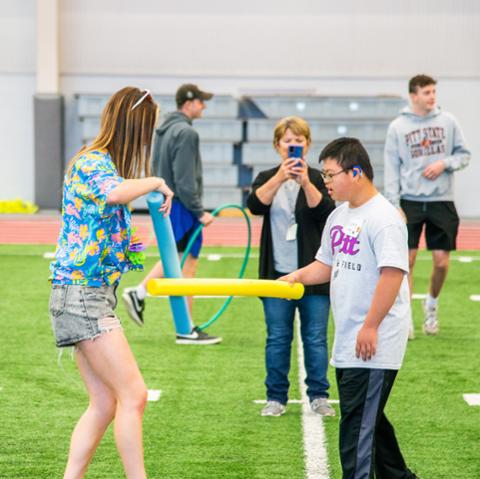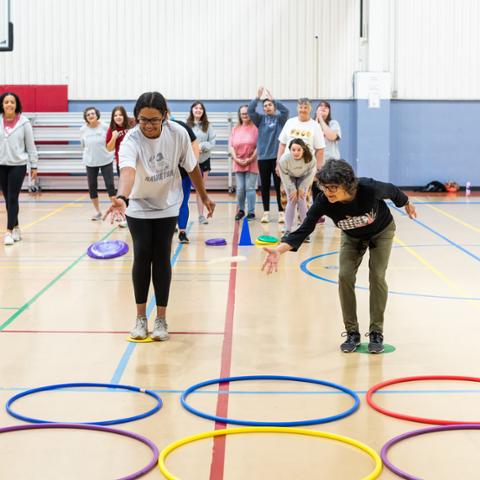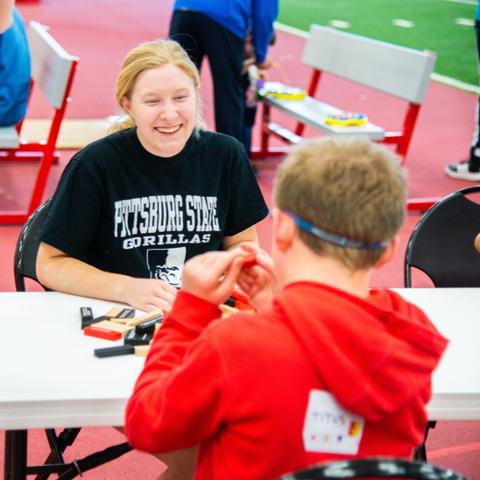The Ability Lab
An experiential classroom for Therapeutic Recreation students at Pittsburg State. Build the skills necessary to become a Certified Therapeutic Recreation Specialist.The lab has various equipment including a custom hand-cycle, goal balls, beeper balls, and wheelchairs for hands-on experience in activities and interventions. Community residents are brought in for students to gain valuable hands-on experience.
We provide students with opportunities to engage in community-based research. Our program encourages students to attend professional conferences to present their ideas and research to industry professionals.
Design Interventions
Create and lead community members in physical activities, games, and expressive/visual art projects to reach goals.
Outside the Lab
Students complete internships in mental health and physical rehabilitation hospitals, retirement communities, and schools.
Partnership Programs
We collaborate with organizations like Special Olympics Kansas and the YMCA to assess the fitness levels of disabled individuals and the elderly.
TR-iffic Day
Our program hosts two major events every year: the TR-iffic Field Day in the Fall and the TR-iffic Day of Play in the Spring.
These events bring together individuals with intellectual and/or developmental disabilities to participate in programming completely designed and led by Pitt State students.
What is a Certified Therapeutic Recreation Specialist?
A Certified Therapeutic Recreation Specialist (CTRS) uses therapeutic recreation interventions to help clients improve their quality of life, and promote health and well-being. The duties of a CTRS include:
- Assessing clients: determine clients' abilities through standardized assessments, observation, and interviews to gather information.
- Developing treatment plans: specific goals, activities, and interventions designed to promote health and well-being.
- Implementing therapeutic programs: interventions including leisure education, expressive or visual arts, physical activity, music, and other forms of recreation.
- Evaluating progress: modify the treatment plan or adjust activities as needed to ensure that clients are making progress toward their goals.
- Documenting client progress: write progress reports and communicate with other healthcare providers or family members.
Careers in Therapeutic Recreation
- Certified Therapeutic Recreation Specialist
- Expressive Therapist
- Activity Therapist
- Life Enrichment Coordinator
- Director of Recreation
- Recreation Specialist
Work Settings for Recreation Therapists
- Schools and special education centers
- Hospitals, psychiatric facilities, and substance abuse treatment centers
- Assisted living communities
- Corrections facilities
- Summer camps
- Physical rehabilitation centers and adapted sports facilities
Location
Student Recreation Center
2001 S. Rouse
Pittsburg, KS 66762
Our Community.


